A Critical Moment for Global Food System
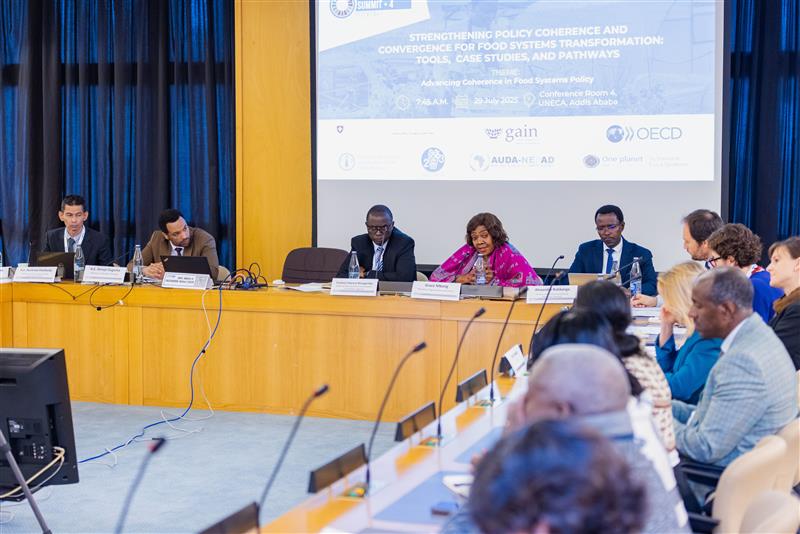
Panel Speakers: Policy Coherence event, 29thJuly 2025
Four years after the landmark 2021 United Nations Food Systems Summit (UNFSS), the urgency of transforming food systems is growing. With just five years left until the 2030 Sustainable Development Goals (SDGs) deadline, momentum is growing, but so are the challenges. The UNFSS+4 Stocktake, held in July 2025, reflects a remarkable evolution in how countries and partners are reimagining food systems to be more inclusive, sustainable, and resilient. Since the first Stocktake (UNFSS+2), countries have moved from vision to action: 128 nations now have national food systems pathways, 155 have appointed National Convenors, and 39 have revised their pathways into detailed action plans. Voluntary reporting has increased, signalling strong political commitment.
Food systems policy coherence is the alignment of policies that affect the food system with the aim of achieving health, environmental, social, and economic goals, to ensure that policies designed to improve one food system outcome do not undermine others and, where possible, take advantage of synergies across policy areas to achieve better outcomes for all.
These efforts are taking shape against a volatile global backdrop of conflict, climate shocks, economic pressures, and widening inequalities, all of which threaten food security, nutrition, and livelihoods. Countries are responding by working to embed food systems transformation into broader shifts toward green and digital economies, backed by social protection and education systems. A growing Ecosystem of Support (EoS), comprising governments, the UN, civil society, youth, private sector leaders, and food producers, is helping drive this transformation forward.
This diverse coalition is now focusing not only on ambition, but on action, and one key ingredient is standing out: policy coherence. It’s within this context that the side event titled “Strengthening Policy Coherence and Convergence for Food Systems Transformation: Tools, Case Studies, and Pathways” was convened during the UNFSS+4 in Addis Ababa. The event, co-organized by AKADEMIYA 2063, AUDA-NEPAD, FAO, GAIN, Switzerland, OECD, and the One Planet Network Sustainable Food Systems Programme and moderated by Jose Valls Bedeau of FAO, offered a platform for technical experts, country representatives, and partners to explore how better aligning policies across sectors can unlock systemic transformation.
This diverse coalition is now focusing not only on ambition, but on action, and one key ingredient is standing out: policy coherence. It’s within this context that the side event titled “Strengthening Policy Coherence and Convergence for Food Systems Transformation: Tools, Case Studies, and Pathways” was convened during the UNFSS+4 in Addis Ababa. The event, co-organized by AKADEMIYA 2063, AUDA-NEPAD, FAO, GAIN, Switzerland, OECD, and the One Planet Network Sustainable Food Systems Programme and moderated by Jose Valls Bedeau of FAO, offered a platform for technical experts, country representatives, and partners to explore how better aligning policies across sectors can unlock systemic transformation.
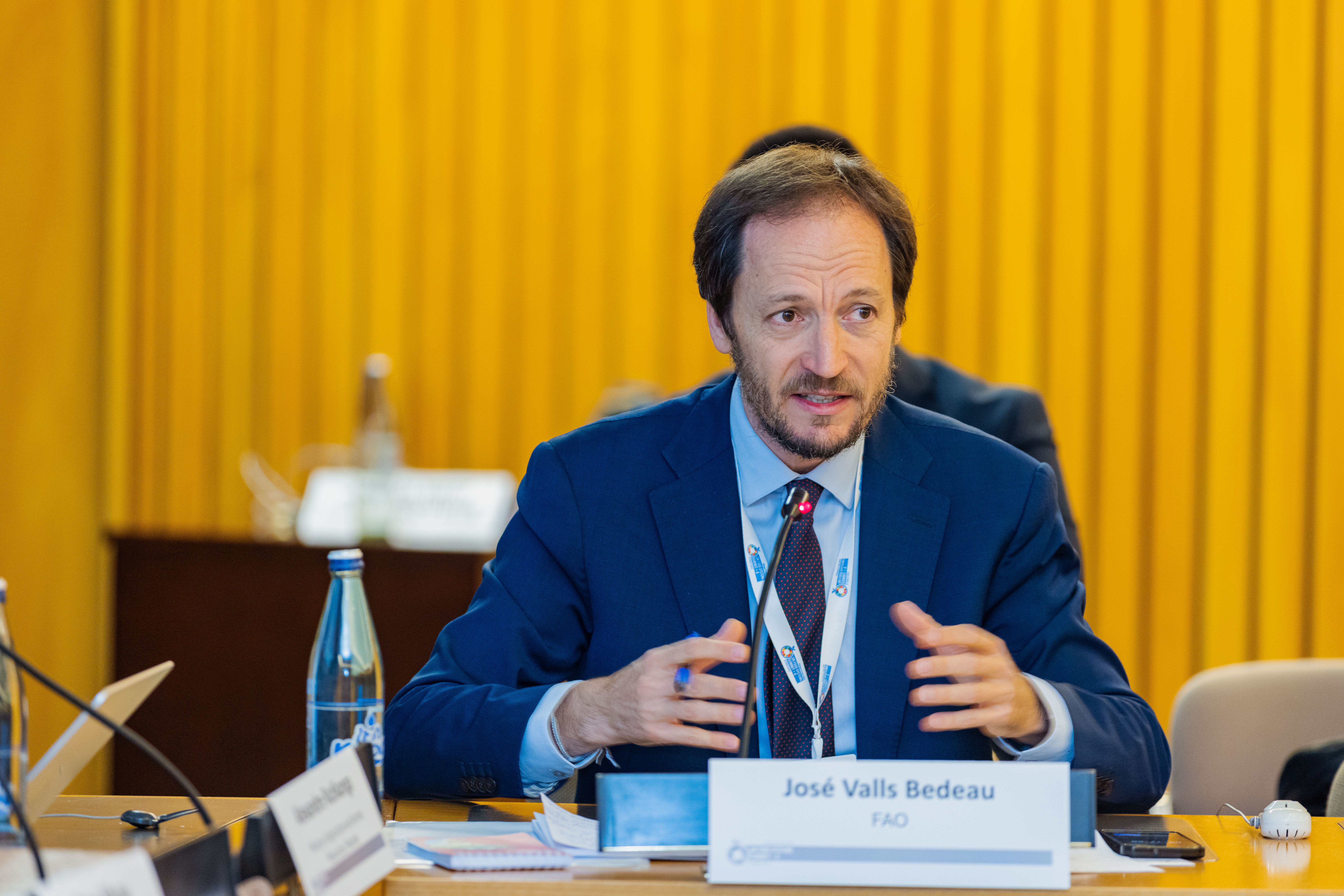
José Valls Bedeau - Moderator
Why Coherence is Key
In her opening remarks, Estherine Lisinge Fotabong, Director at AUDA-NEPAD, emphasized that fragmented or contradictory policies not only waste resources but can actively undermine efforts to improve food and nutrition security, climate resilience, and inclusive growth. Drawing from Africa’s experience with the Comprehensive African Agriculture Development Programme (CAADP), she introduced the Policy Coherence Diagnostic Tool, developed by GAIN and AKADEMIYA 2063, as a practical way to identify and bridge policy gaps across sectors. “Transforming food systems requires policy coherence,” Estherine stated, reminding participants that incoherence often leads to inefficiencies, missed opportunities, and unintended consequences such as environmental degradation or deepened inequalities.
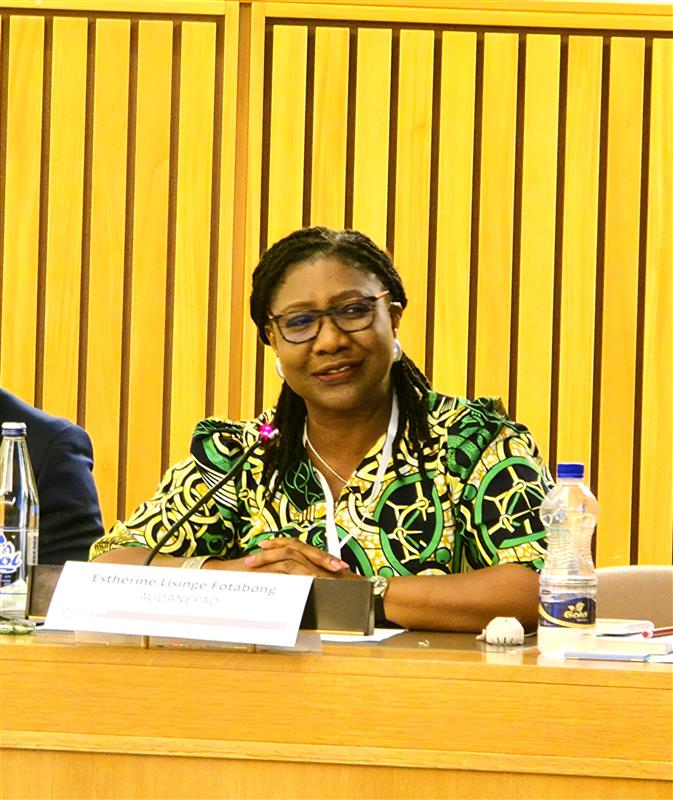
“Food systems are like a fabric. They’re woven together from many threads. Without policy coherence, that fabric begins to fray.” – Estherine Lisinge Fotabong
It was this image, a tightly woven fabric of coordinated efforts, that guided the session’s exploration into one of the most essential, yet complex, components of food systems transformation: policy coherence.
Tools to Navigate Complexity
Stella Nordhagen from GAIN presented the Policy Coherence Diagnostic Tool, a modular, easy-to-use way to assess policy alignment across six key food systems goals. Applied in 10 countries across Africa and Asia, and partially to two in Europe, the tool revealed a common trend: while countries often show strong political commitment and have relevant strategic frameworks, gaps persist in implementation, stakeholder inclusion, and accountability.
Stella highlighted frequent misalignments, such as agricultural subsidies promoting unhealthy diets or trade barriers that hinder access to nutritious foods.

Stella Nordhagen, GAIN
Lee Ann Jackson from the OECD introduced another approach: the Productivity, Sustainability, and Resilience (PSR) Framework. Drawing on decades of agricultural policy analysis, the OECD is now integrating food systems thinking into its country reviews. The PSR Framework focuses on understanding how innovation, structural change, and environmental constraints intersect to shape policy outcomes. Lee Ann emphasized the importance of peer learning, country benchmarking, and data-driven analysis to ensure that food systems support both long- and short-term goals.
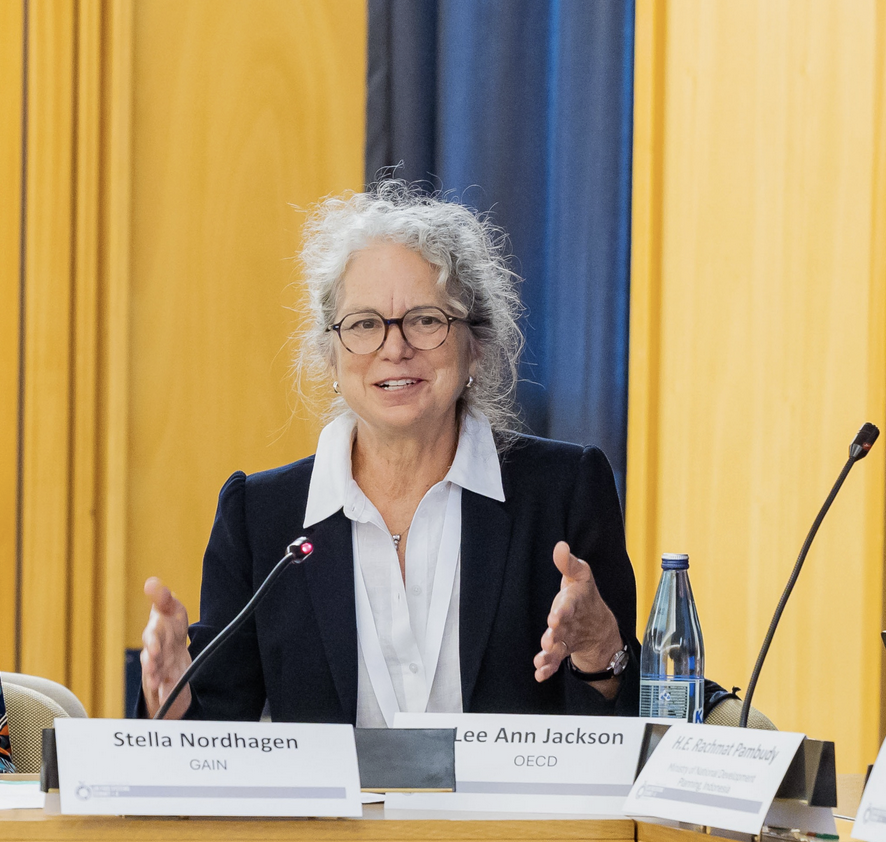
Reflections from National Representatives
The dialogue also included perspectives from government representatives in Brazil, Switzerland, Ethiopia, Indonesia, Cameroon, Uganda, and Rwanda, countries deeply engaged in the complex work of aligning food systems policy.
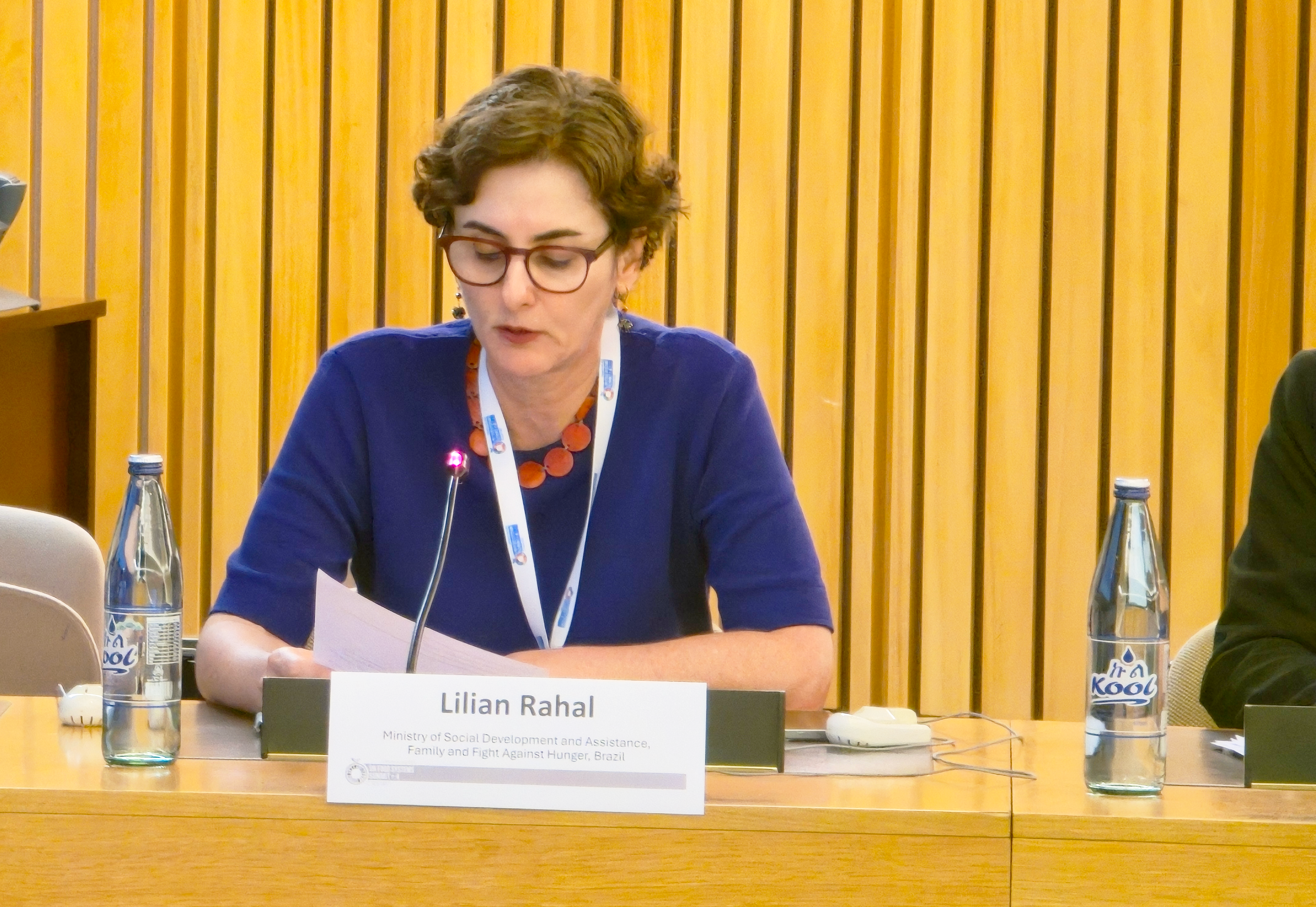
Lilian Rahal, Brazil’s Ministry of Social Development
Lilian Rahal, representing Brazil’s Ministry of Social Development, provided a powerful example of policy integration in action. Brazil’s approach is rooted in human rights and guided by the principle of adequate food for all. The country has established a National Council on Food and Nutrition Security, which includes both government and civil society to co-create and monitor policies. Lilian also shared two flagship initiatives: a redefined basic food basket based on dietary guidelines and a community-led effort to tackle food deserts. Brazil is preparing to launch a food systems and climate policy framework ahead of COP30, emphasizing climate justice and food sovereignty.
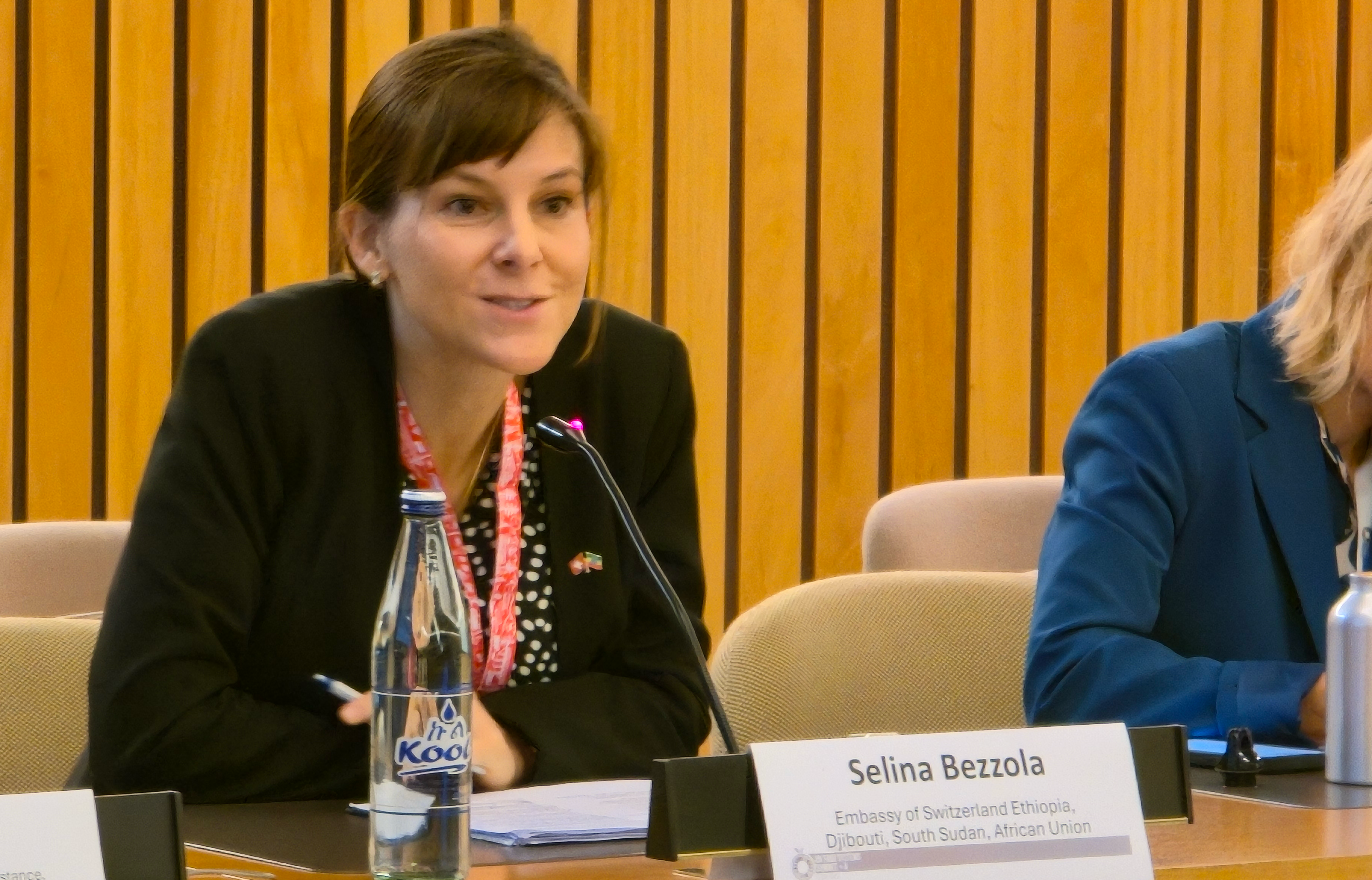
Selina Bezzola from the Embassy of Switzerland in Addis Ababa
From Switzerland, Selina Bezzola from the Embassy of Switzerland in Addis Ababa shared a different but equally effective model. While Switzerland doesn’t have a centralized mechanism for food systems coherence, it achieves alignment through cross-ministerial collaboration and working groups. National strategies such as those on climate, nutrition, and food waste have all been developed collaboratively. Selina also spoke about Switzerland’s support to two critical tools - the Policy Coherence Tool and the 3FS financial tracking tool, that could be used to evaluate the extent to which countries’ food systems strategies are supported by existing food systems policies and how well aligned budgetary expenditures are with these.
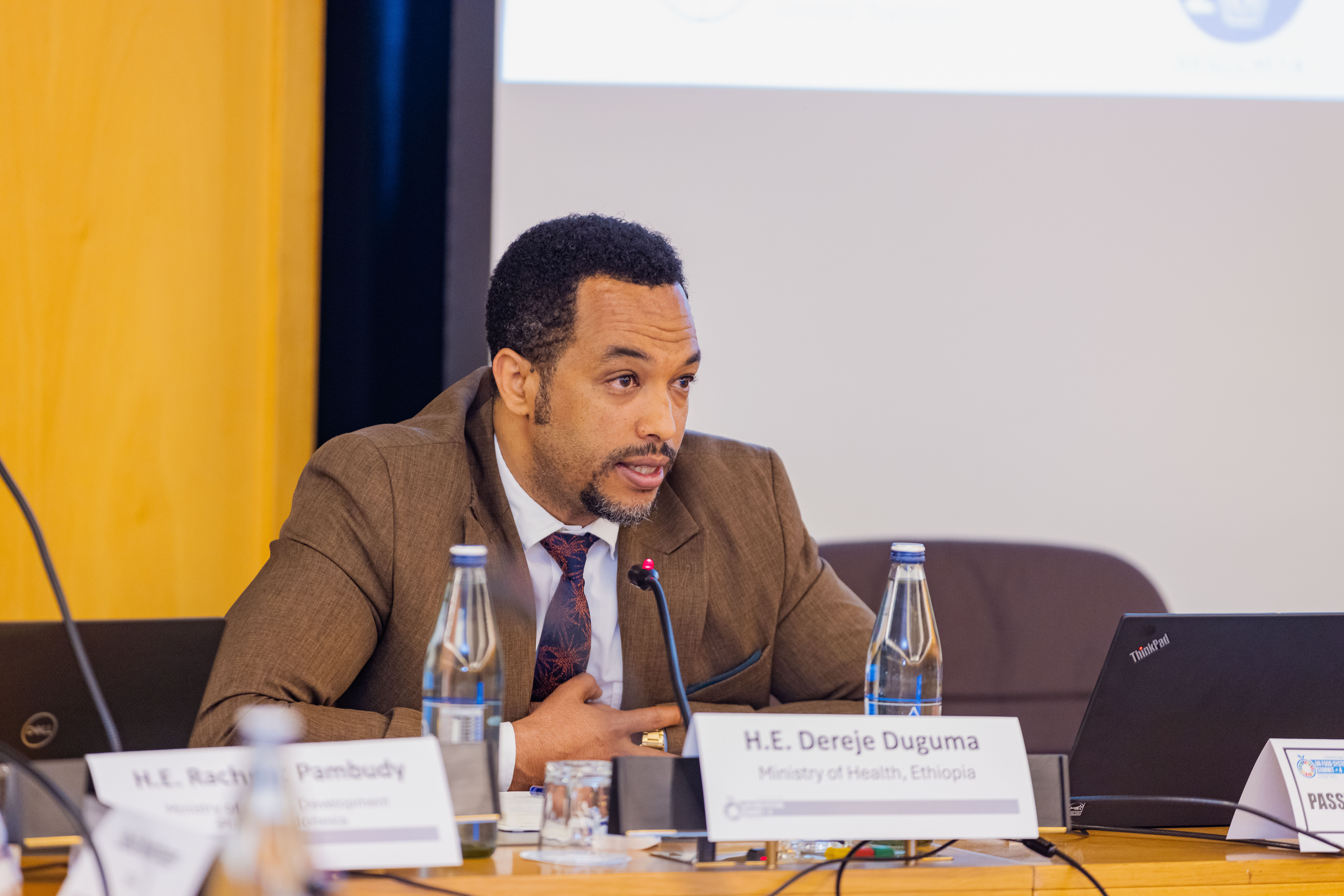
Dr. Dereje Duguma
Ethiopia’s State Minister of Health, Dr. Dereje Duguma, acknowledged progress in production and political commitment, but pointed to challenges such as high food prices, limited dietary diversity, and urban obesity. The country is working on new trade policies and market reforms to improve access to healthy, locally produced foods.
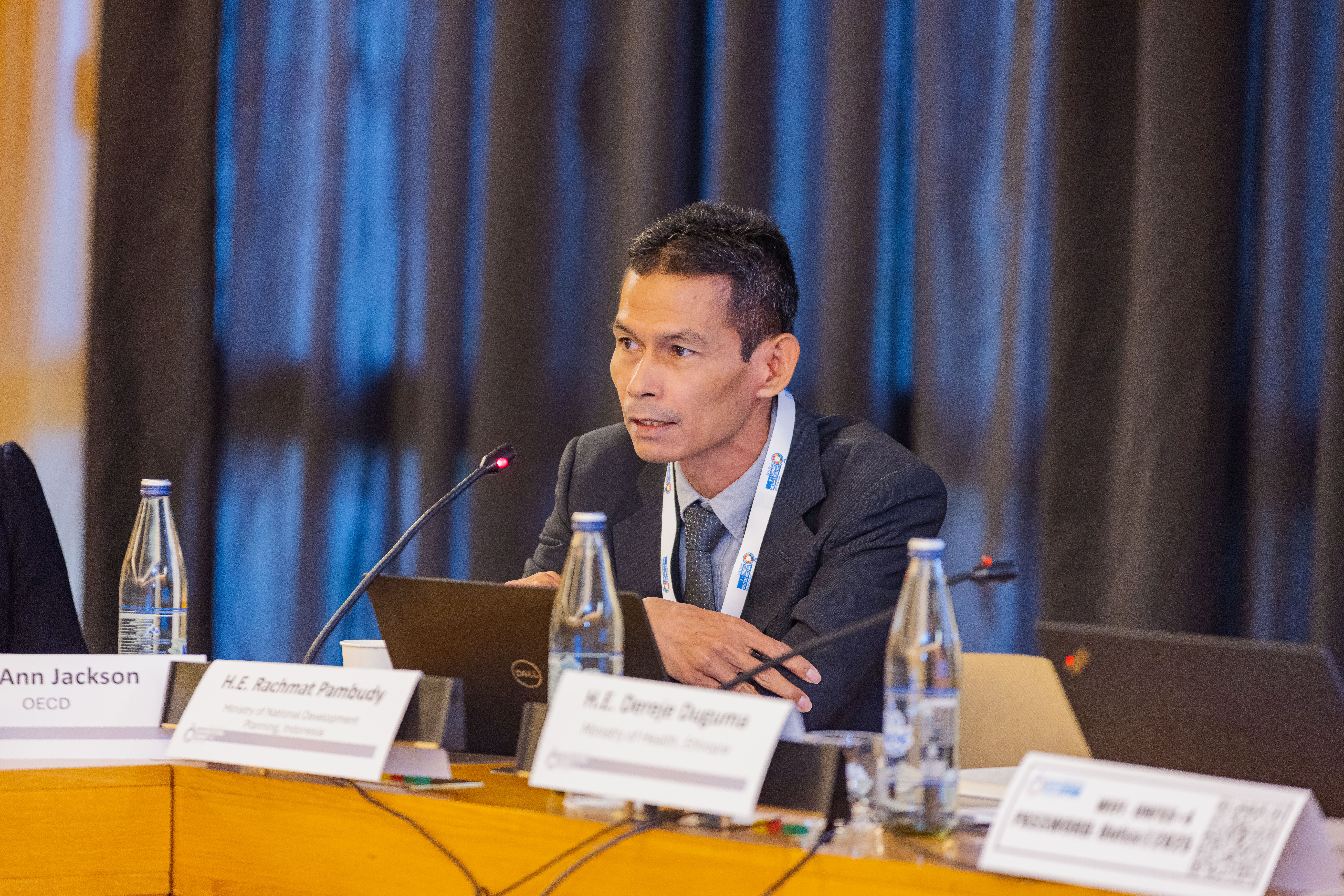
Jarot Indarto, national convenor, Indonesia
Jarot Indarto, the national convenor Indonesia, spoke about the challenge of governing an archipelagic country with over 500 districts. Indonesia is addressing coherence through a national development plan and a food systems dashboard that integrates diverse data sources. The country is also tracking financial flows to identify underinvestment in areas like nutrition and climate resilience.

Grace Mbong, Permanent Secretary, Ministry of Agriculture
From Cameroon, Grace Mbong, Permanent Secretary at the Ministry of Agriculture, outlined efforts to overcome siloed administration. Cameroon has developed convergence blueprints and established multi-sectoral coalitions across five ministries. The government has also taken steps to support agroecological practices, reducing reliance on chemical inputs and promoting youth-led innovation in agriculture.
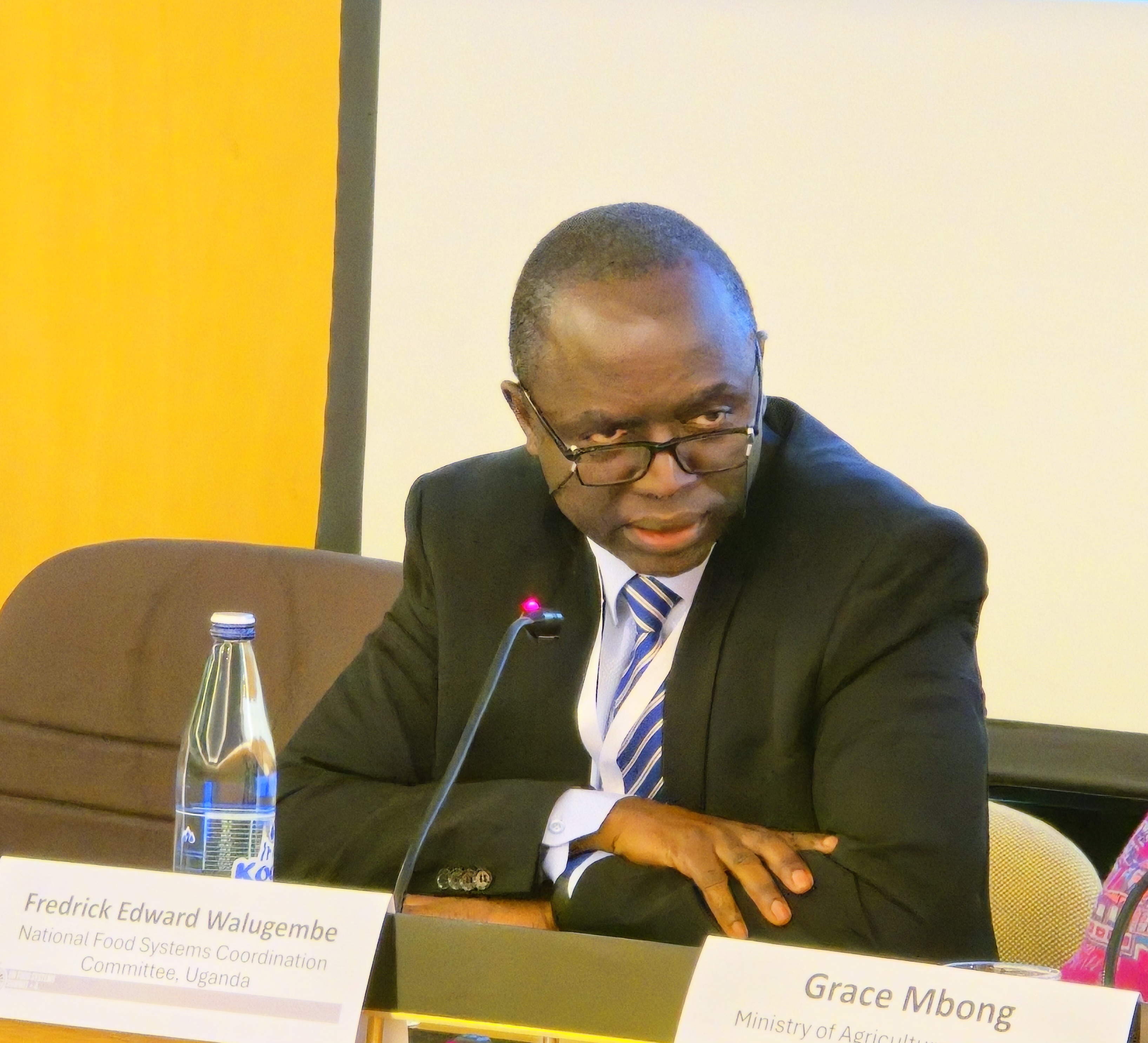
Fredrick Edward Walugembe. Uganda
Representing Uganda, Fredrick Edward Walugembe described a whole-of-government and society approach led by the Office of the Prime Minister. Uganda has established a Food Systems Coordination Committee and created a new Food and Agriculture Authority. While institutional structures are improving, he noted that implementation capacity and financing remain key challenges.
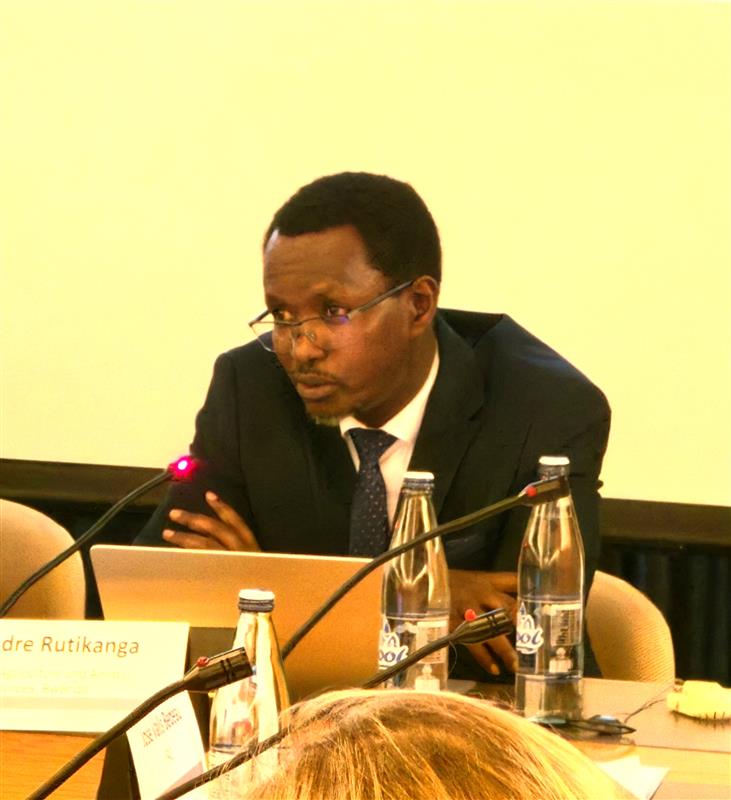
Alexandre Rutikanga, Rwanda
From Rwanda, Alexandre Rutikanga discussed efforts to address incoherence in land use and service delivery. Fertile agricultural land being used for real estate or industry highlighted the need for stronger policy integration. Rwanda is promoting a land use consolidation policy and has integrated nutrition-sensitive indicators into its national performance and budgeting frameworks.
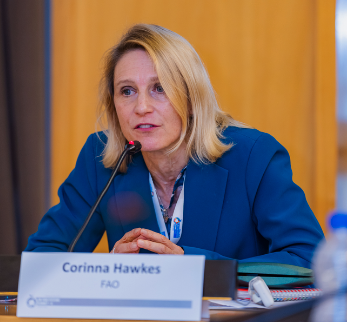
Corinna Hawkes, FAO
Finally, Corinna Hawkes, Director of Agrifood Systems and Food Safety at FAO, reflected on the diverse forms of policy incoherence discussed and emphasized the importance of moving from governance design to action, what she called “systems doing.” Corinna stressed the need for robust monitoring and evaluation mechanisms to assess coherence during implementation. She invited stakeholders to engage with FAO’s tools and resources, including a forthcoming guide on applying systems approaches to food and agriculture transformation.
A Way Forward
The session revealed both the challenges and opportunities of achieving policy coherence in food systems. Despite differences in geography, governance, and resources, countries are finding innovative, locally relevant ways to align their strategies. Tools like the Policy Coherence Tool, the OECD’s PSR Framework, and the 3FS tool are helping policymakers better understand and improve the interconnected policies that shape food systems. Most importantly, the event underscored a shared commitment to breaking silos, building bridges, and putting coherence at the heart of food systems transformation.
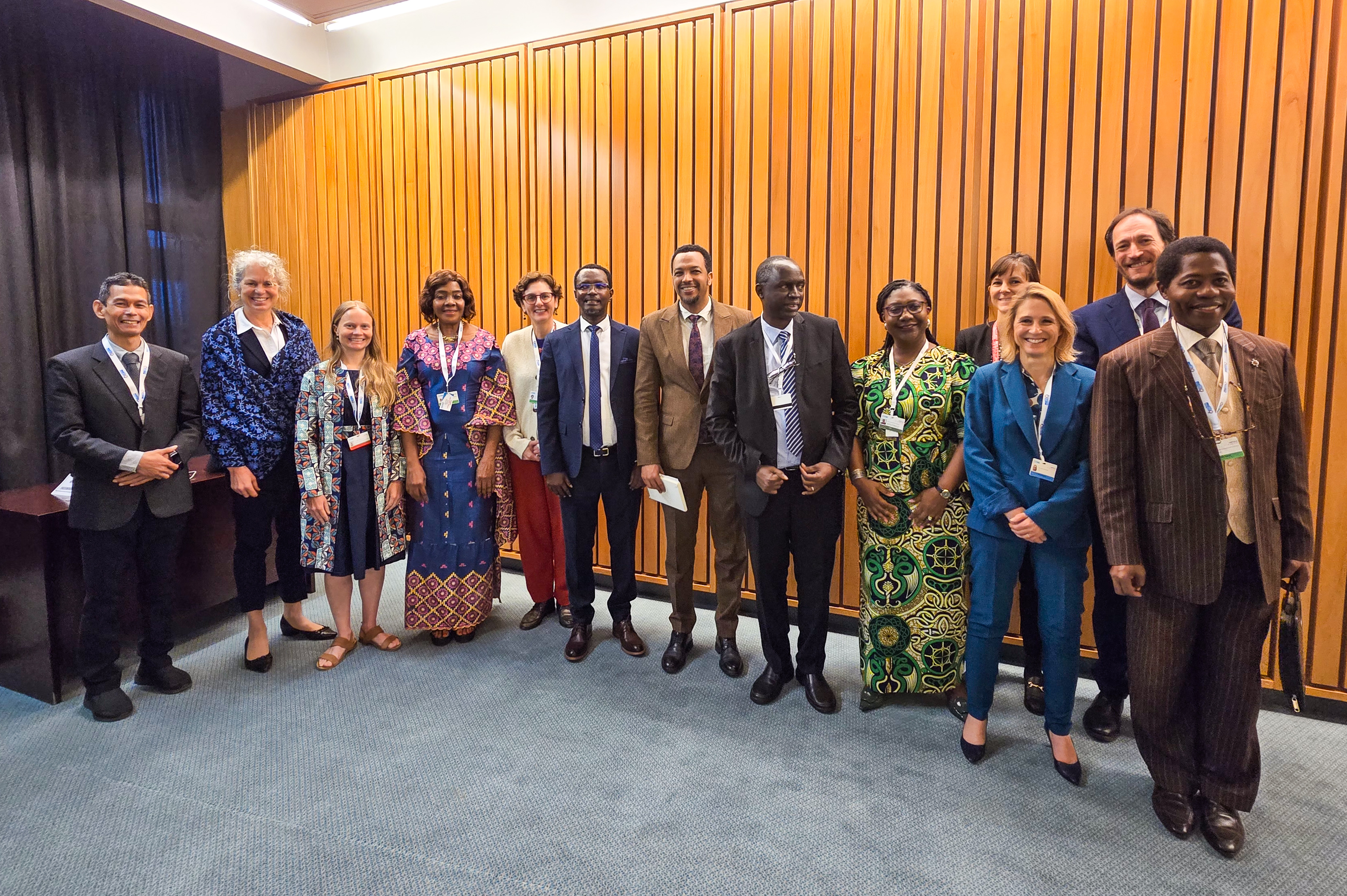
Panel Speakers